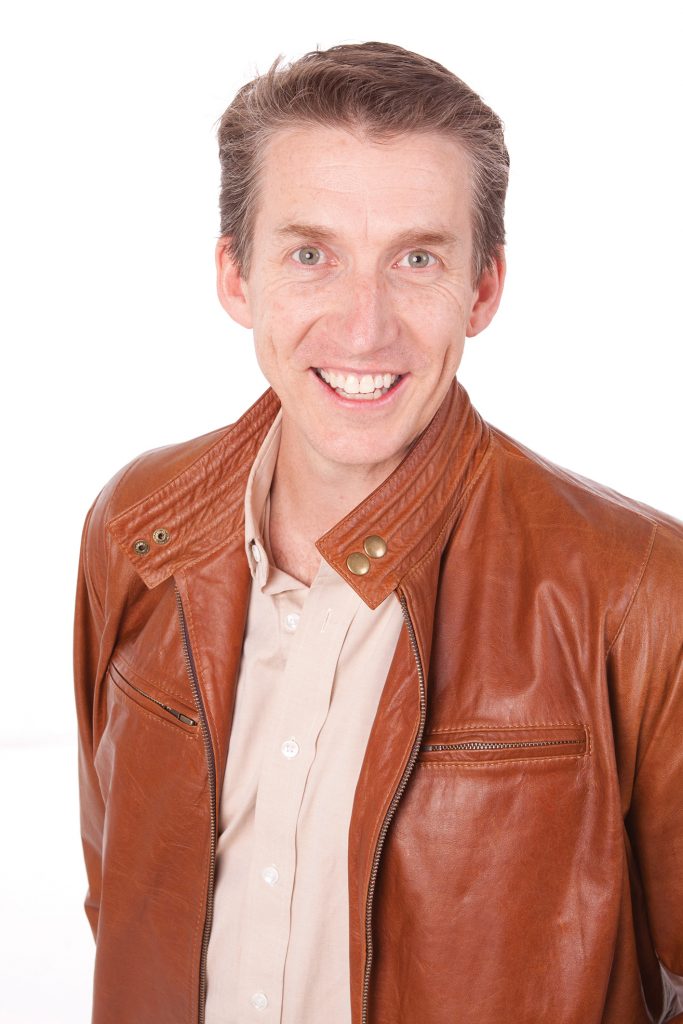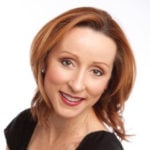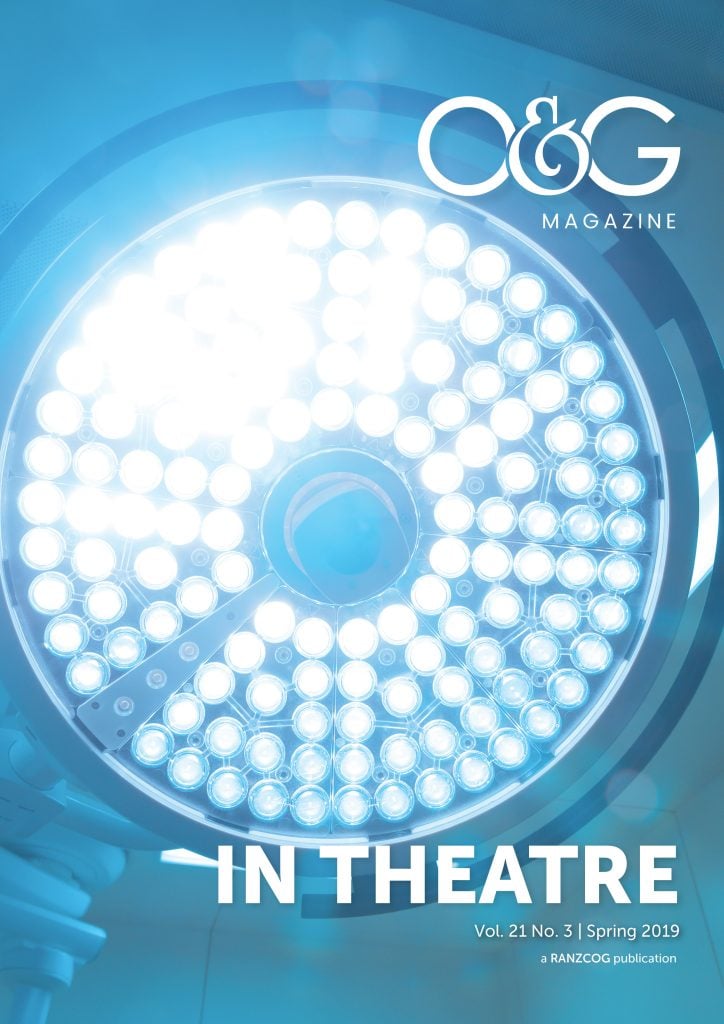This new O&G Magazine feature sees Dr Kirsten Connan in conversation with RANZCOG members in a broad range of leadership positions. We hope you find this an interesting and inspiring read. Join the conversation on Twitter #CelebratingLeadership @RANZCOG @connankf
Prof Jason Abbott
BMed(Hons), FRANZCOG, FRCOG, PhD
Prof Jason Abbott, gynaecologist and laparoscopic surgeon, is the immediate past president of the Australasian Gynaecological Endoscopy & Surgery Society (AGES), the medical director of Endometriosis Australia, the Professor of Gynaecological Surgery School of Women’s and Children’s Health, UNSW Medicine, one of the Chief Investigators for the National Endometriosis Clinical and Scientific Trials (NECST) Network, and is Senior Editor of the Journal of Minimally Invasive Gynaecology. Prof Abbott also heads the GRACE research unit at UNSW, is the founding director of Alana Healthcare, and supervises multiple PhD, honours and master’s students, and has over 120 peer reviewed publications.

Prof Abbott is passionate about research driving clinical care and, when not working, can be found at his farm delivering a newborn calf, taking a chainsaw to a fallen tree or slow-cooking a batch of his famous (and crazy-hot) sweet chilli sauce!
What led you to obstetrics and gynaecology?
It was definitely obstetrics that made me want to pursue a career in O&G. I had early exposure to the delivery suite as a medical student and, from my third year of medicine, that was all I wanted to do. With placements as an intern and then six months during my residency, it was just as well that was my chosen path, since I had not done much else (excepting nights, relief and surgical terms). I did not really understand gynaecology, having limited exposure, but when I did, it was clear to me that there was so much that was unknown. Now, 25 years later, there is still so much unknown, but I see improvements.
What have been your career-defining moments?
My first delivery (thanks Janet). My first caesarean delivery as an intern (thanks George Angus). Being awarded the FJ Browne Medal. Being awarded my PhD. Promotion to Professor – I was in the car when the Dean of Medicine at UNSW called to tell me I had been successful, and I was so emotional (it was very unexpected – at least for me). I think I may have cried, but since I had my tear ducts removed to enhance my steely façade, that seems unlikely!
Were you a ‘born leader’?
I have always been self-confident, and leadership comes naturally.
I guess I was the bossy kid, giving directions about what we were going to play and how it was to be played, and that has continued. I have a strong sense of science and ensuring that there is an evidence base to what we do (hence the research), and don’t mind getting on my soapbox to preach about evidence (I know, shocking)! I used to worry about people not liking me and how that would affect leadership opportunities, but the more my career advances the less I worry about that. The drive to be liked is far less important than the drive to do what is right and evidence based.
Where did you learn your leadership skills?
This was initially with sports and community groups, then high school councils and debating teams, a career as an aerobics instructor (where leading in lycra is a whole new leadership spin!) then roles as trainee representative for the College and then TAC.
Working with Dr Vijay Roach on the NSW TAC as deputy chair was the first time I had leadership mentoring. I learned volumes from Vijay: ethics, procedural importance, active listening and compromise.
As I have matured, I have increasingly recognised that compromise is very important if you want to work collaboratively. More recently, I have had increasing roles with government, consumers and community groups, and these skills are absolutely paramount to good leadership. I have enjoyed working with leaders from non-medical fields and have continued to learn from them. I enjoy that aspect of leadership enormously.
How have you sustained your leadership?
Leadership definitely requires continuous work. You must have capacity to delegate, you must have the security to accept the accuracy and diligence of those you delegate to, and you must be committed to support and engage with all those you come into contact with in your role as leader.
One of the most rewarding components of leadership is the nurturing and development of those around you. I have really enjoyed working with people who have different backgrounds, fantastic ideas and commitment to a variety of causes. Stepping back from what you see as the way forward and taking stock of those ideas, those skillsets and those values has often led to changes in my leadership vision – and frequently for the better.
You also need to recognise when your chosen pathway is not the right one to take. Stop; evaluate and change direction.
Working with the next generation of leaders, soaking in their enthusiasm and, most importantly, nurturing, supporting and promoting them – that, to me, is sustaining.
Do you hold a role within RANZCOG?
I chair the AGES/RANZCOG committee advising on endoscopic surgery and this includes many aspects of surgical training.
There has already been considerable discussion around where surgery may go, and we need to continue this dialogue and make sure that we identify factors that will improve gynaecological surgery that is focused on women and not on doctors.
We often speak about the separation of our specialty in two, and I think we must firmly consider the consequences of what that would look like and the impact on services across our two nations. I am strongly in favour of having a skilled workforce that can provide high-quality surgical care for emergency situations, since that will save lives. I am also in favour of noting that we cannot train all Fellows in advanced gynaecological surgery and we have to define what that means and how that affects women. Importantly, it cannot disadvantage women, but increasing patient demands for perfect outcomes means rationalising surgery and training fewer surgeons to a higher level to maximise quality.
I don’t pretend that I have the answer as to how that will occur or the numbers needed, but surgery is increasingly complex and heterogenous and we no longer are the specialty who does four operations and that is all. Asking the difficult questions and perhaps suggesting difficult answers is what needs to be done.
What do you see as the challenges for current RANZCOG trainees?
There is no doubt that our profession is incredibly rewarding and diverse, but that diversity is also one of the greatest challenges. In a relatively short timeframe, the demands of our vocation and the expectation of perfection (both from ourselves and our patients) has become increasingly apparent.
I think one of the greatest challenges is to choose what you will not do in your practice and identify your limitations. It is simply not possible to be expert in all aspects of our profession and, therefore, understanding where you draw the line for you is very important.
As a gynaecological surgeon, you need to ask what is best for the patient and not what is best for you, and always keep that as your mantra. We do have a barrier to accepting that we don’t know everything and the admission of not knowing as being a failure. I think that is a sign of enormous insight and a marker of a good obstetrician and gynaecologist.
What role has AGES played in your career?
I have been a member of AGES for more than 20 years now and it is an integral part of my career.
I have seen the Society mature and develop and its evolution has been one of the greatest reasons for its continued success. It has moved from survival mode, requiring substantial defence of just about every action in surgery to the modern, innovative and inclusive society it is today.
As I have become involved in the general board and then the executive, I have had the pleasure to work with brilliant, dedicated and committed individuals and learn some valuable lessons along the way.
There is a great challenge to keep members and sponsors happy and engaged and all within the necessary confines of good governance, and with the view of improving women’s health.
What are the current challenges for AGES?
It is often said that AGES was a ‘boys club’ and I think that is correct; but, then again, it comprised male specialists because that was our demographic.
With nearly 85 per cent of trainees and 50 per cent of College Fellows being female, that has changed, and so too has AGES. AGES now has great diversity on the Board (40 per cent female representation) and I hope this will carry into its future top-level leadership.
Identifying what members want and need is imperative for any contemporary society and that is a challenge. Surgery has changed in gynaecology in an enormous way and we have seen the rise and fall of products and procedures in the space of 15 years. Paying close attention to the science, evaluation of techniques and the importance of information to all are the greatest challenges to the Society and I think are complex and difficult to predict. In my farewell speech as President, I noted that my contribution to AGES is there for the Society to evaluate, modify or reject – it has to be that way when you have been a leader. That is part of the joy, to see what happens to the shape of the organisation when you leave and celebrate its evolution to its next great height.
Can you tell me about your role with Endometriosis Australia?
I have been the Medical Director for Endometriosis Australia since its inception and to be a part of a charity that has been developed from scratch has been a huge undertaking and an amazing opportunity.
Working with co-founder and Board Director, Donna Ciccia, has expanded my view of the patient experience. Donna is like the Endometriosis Eveready bunny and just goes and goes and goes with phenomenal energy. It was groups including Endometriosis Australia who have brought about the National Action Plan in Endometriosis (the first for any disease in this country) and that has been an enormous step forward.
Continued political engagement has also led to specific endometriosis research funding and the NECST Network is the vanguard of future endometriosis research in the country.
Having worked in endometriosis and pain research all my career, it is absolutely clear that the only way that we will change the direction of endometriosis is through large-scale and collaborative projects with buy-in from clinicians and the backing of our scientist colleagues to contribute the components that we do well separately but need to combine for the answers to crystallise. The other critical component is engagement with the consumers and to understand what they want from research and to get them involved. It is only with this inclusive approach that we can progress. Individual pathways are a sure-fire way to keep our knowledge base where it is currently – and that is not acceptable.
Do you see yourself as a feminist?
Absolutely! The qualification of that is that I am totally committed to the health and welfare of all women, but not to the exclusion of men’s health and welfare, since that would be sexist, and I don’t accept sexism in any form. However, the reality is that we do not yet live in a world that is gender equal. We must continue to assert the equality of women so that we come to the place where everyone recognises that gender is not important. I do think it can occur, but we need to continue to work on it.
How do you ensure work-life balance?
Richard and I go to the farm, get our hands covered in soil in the vegetable patch, pick whatever is in season and eat it right there, watch the bees and learn about their behaviour, raise cattle and learn how to grow better pasture. We sit on the porch and talk about work, economics, politics, irrigation problems, or the problem with the carburettor in the quadbike and how to solve it.
Going to the gym and doing yoga is great for the body, brain and soul and spending time with family and friends – which usually involves eating, talking and laughing. I love the creative release of photography and the introspection that it allows me. Most important is remembering that being a doctor is part of my life, not its entirety, and that I am most definitely replaceable in my vocation.
What advice would you give to a trainee starting their career?
Try lots of different things. Learn what you are good at and keep doing it. Learn what you are not good at and stop doing it. Look after your own health. Do something that is not medicine. Love your job or change it. Take time to reflect and enjoy the white space.
If you could, would you do anything differently in your career?
It is something I have reflected on and the answer is no in terms of direction. I should have listened more and spoken less, but some things never change.
Do you have any regrets?
Not having children; but like so many couples who face that reality, we have resolved and evolved.
What three words best describe your life?
Dedication. Education. Inspiration (I am always in search of it!)
What would you tell your younger self if you had the chance to go back in time?
Be more patient with yourself and those around you.





Leave a Reply